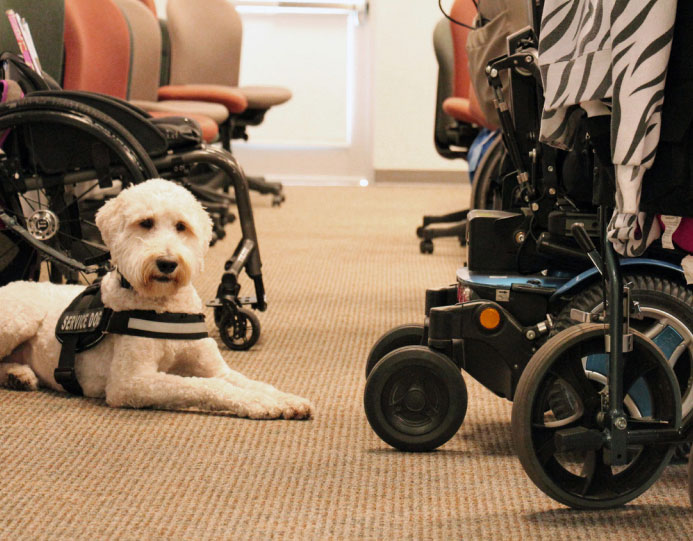The Fair Housing Act
The Fair Housing Act (FHA) protects people with disabilities from being treated differently than others in housing situations. Under the FHA, people with disabilities also have additional rights, such as the right to ask for an accommodation to have an assistance animal if there is a “no-pets” policy (42 U.S.C. § 3601 et al. See also the Utah Fair Housing Act at Utah Code Ann. § 57-21-1 et al.).

What is an Assistance Animal?
The FHA provides that an assistance animal is an animal that helps a person with a disability deal with physical and/or emotional problems. An assistance animal also allows a person with a disability to fully use and enjoy their residence. “Assistance animal” is an umbrella term which may include service animals, guide dogs, hearing animals, therapy animals, and emotional support animals. These animals are not “pets” and must be prescribed by a doctor or other professional.
Who Can Ask For an Assistance Animal?
Only people with disabilities have the right to ask for assistance animals. A person with a disability must be able to show that they really need an assistance animal to be able to use and enjoy their dwelling. You must also obtain permission from your landlord before moving your assistance animal into your home.
A Landlord Has Rights When You Ask to Have an Assistance Animal
A landlord may ask for verification that you have a disability and need the assistance animal to use and enjoy your unit. They may have a form for you to fill out, but a note from your doctor, therapist, or other professional who is familiar with your disability is acceptable as well. Under the FHA, a landlord may NOT ask you to pay any deposits or fees for an assistance animal.
Your Responsibilities
If you have an assistance animal, your responsibilities include:
- treating your animal well;
- keeping the animal under your control at all times;
- making sure your animal is well-behaved;
- cleaning up any and all animal food/waste;
- paying for any damage caused by your animal;
- following local laws about animals (which may include having your animal licensed and/or inoculated).